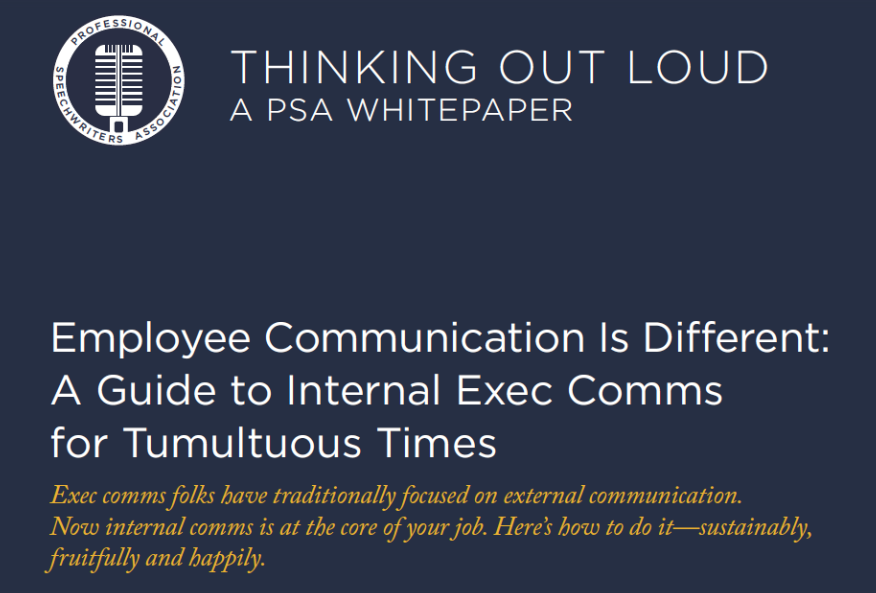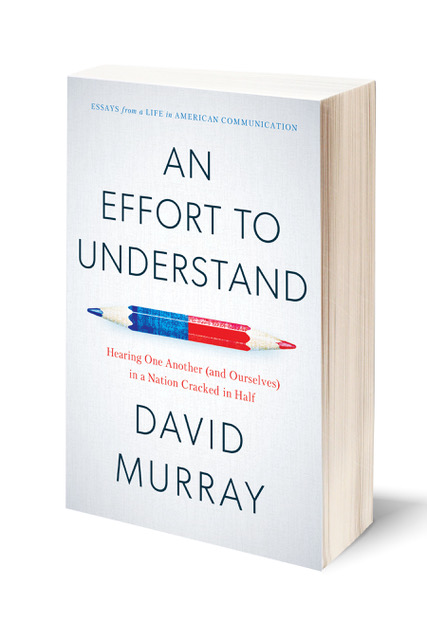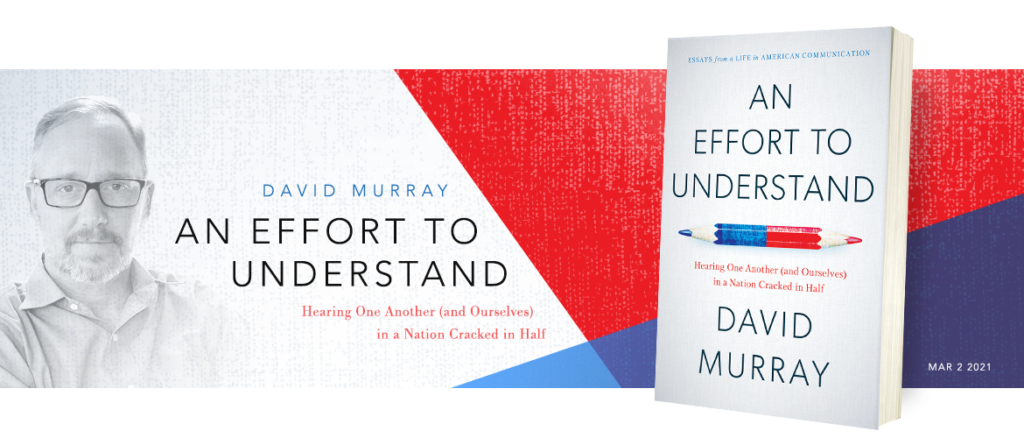In my first year out of college I was writing for two newsletters: The Ragan Report, which went out to corporate internal communication directors (which was mostly a glorified title for “editor of the employee newspaper”). And Speechwriter’s Newsletter, which went out to speechwriters, before they even got their glorified titles, as “directors of executive communication.”
I got in arguments at the Brehon Pub back then with the editor of Speechwriter’s Newsletter. Why? Because I was a young pipsqueak moralist who believed speechwriting to be an amoral pursuit—at least as opposed to internal communication, which had to do, theoretically, with democratizing organizations by making information more available to employees. Speechwriters were articulators for hire. Employee communicators had a social mission. I gradually focused my attention on them and wound up founding, on behalf Ragan Communications, a successful Journal of Employee Communication Management.
That was all in the 1990s.
Since then?
The Journal is long defunct, the victim of the death of the soul of internal communications. Seemingly in the blink of an intranet, the typical profile of an employee communication pro transformed from an ex-journalist still wanting to use her editorial skills for social good, to a philosophy- free communications major who wanted to make director someday. The Journal died because there was no one left to write substantive essays on internal comms, and no one interested in reading them. By then, I wasn’t much interested in editing them, either.
Professional speechwriters, meanwhile, have much more fidelity to their personal views than they did when I first met them. I think the TV show West Wing had something to do with that—established the cultural idea that a speechwriter was an idealist first and a scribe second. Back in the 90s, many speechwriters took pride in their lack of “authorial pride,” an attitude I found as a young writer and find as an older one too, either disingenuous or disgusting or both.
Over the years I have also come to believe, if cautiously, in the idea of rhetoric as a test of truth. That is, if an idea sounds like it holds water for a paragraph and then for a whole speech and then for a decade of speeches—then it holds water. So I consider serious speechwriters to be serious citizens, and I’m proud to serve them and fascinated to swim among them.
I realize I’m painting with the broadest brush here too. There are true creeps among speechwriters, just as there are brilliant, thoughtful, philosophical internal communicators—like Sharon McIntosh, with whom I gathered a summit of exec comms folks and internal comms a couple of years ago, in Chicago. Our aim was to help these two disciplines partner more effectively with one another.
We discovered that my eggshell mind was not the only place where exec comms and internal comms people fought with one another. The exec comms pros were especially hostile to the internal comms people, frustrated by their fixation on communication media over message—I actually heard myself bellowing at one point in the middle of the meeting, “No more apps!”—and disappointed in their comparatively goody-two-shoes corporate demeanor. One grizzled speechwriter who I’d talked into coming texted me a photograph of an empty bar. “This is what 9:00 p.m. looks like, at a fucking employee communication conference!”
But since COVID and George Floyd, exec comms is internal comms. Whereas exec comms pros used to spend all their time writing Davos speeches and Wall Street Journal op-eds, only 13 percent told the Executive Communication Council recently that they’re mostly focused on external stuff. They’re doing more internal work than ever.
But of course, they have no foundation beneath them or philosophy behind them.
And neither do many of their internal communication colleagues (see “philosophy-free,” above).
Both groups, in fact, are scratching their heads and wondering what in the world to have their executives say next to a worried and weary workforce on whom they must rely for many difficult months, maybe years to come.
Just in time for Labor Day, here’s an answer, from one fella who’s been thinking about this—hard—for about three decades. (Me.)


